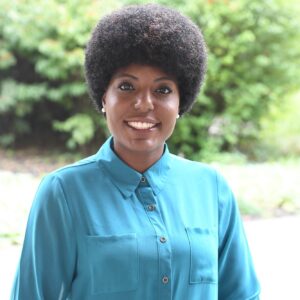Nomination Deadline: October 15
Purpose: The CCCC Committee on Technical Communication presents the Outstanding Dissertation Award in Technical Communication annually during the Awards Session at the CCCC Convention.
Eligibility: Dissertations eligible for the 2027 Dissertation Award in Technical Communication must have been completed in 2025 or 2026. A dissertation may be nominated only once during its two-year period of eligibility.
Award Criteria: Dissertations are evaluated according to the following five criteria: originality of research, contribution the research makes to the field, methodological soundness of the approach used, awareness of the existing research in the area studied, and overall quality of the writing.
Award Specifics: Applicants must submit the following materials: (1) letter of nomination from a dissertation committee member, preferably the chair, emphasizing the significance of the research for technical communication studies; (2) an extended abstract (approximately 250 words); and (3) a copy of the dissertation. Send materials by October 15, 2026, to the CCCC Liaison, cccc@ncte.org.
E-mail questions
Outstanding Dissertation in Technical Communication Award Winners
2026 Recipient

Adrianna Deptula, “Charting Chronicity: A Thematic Analysis of Clinical Pain Assessment Tools and Patient Documentation Design”
2026 Honorable Mention

Codi Renee Blackmon, “Unveiling Racial Dynamics: BLAIWOC Technical Communication within White-Dominant Online Recovery Spaces”
2025
Elena Kalodner-Martin, “Medical Evidence, Expertise, and Experiential Knowledge: A Study of Patients’ Communication Practices on Social Media”
2025 Honorable Mentions
Hannah Stevens, “Dismantling Barriers to Publishing: Identifying Types of Negative Review Experiences and Strategies for Mitigating Them”
Chenxing Xie, “Transnational Risk Communication of Long COVID Legitimation”
2024
Morgan Banville, “Am I Who I Say I Am? The Illusion of Choice: Biometric Identification in Healthcare”
2023
Wilfredo Flores, “Toward a Virulent Community Literacy: Constellating the Science, Technology, and Medicine of Queer Sexual Health”
2023 Honorable Mentions
Veronica Joyner, “Black at the OB-GYN: Rhetorics of Race in Women’s Health Care”
Jessica McCaughey, “Dynamic Workplace Writing Transfer: Writing Across Career Change”
2022
Gabriel Edzordzi Agbozo, “Spatial Technologies, (Geo)Epistemology, & the Global South: Addressing the Discursive Materiality of GhanaPostGPS through Technical Communication”
2022 Honorable Mention
Yeqing Kong,“‘Water Is a Human Right’: Exploring Environmental and Public Health Risk Communication in the Flint Water Crisis”
2021
Cecilia D. Shelton, “On Edge: A Techné of Marginality”
2021 Honorable Mentions
Sweta Baniya, “Comparative Study of Networked Communities, Crisis Communication, and Technology: Rhetoric of Disaster in the Nepal Earthquake and Hurricane Maria”
Wil LaVeist, “Adding Soul to the Message: Applying African American Jeremiad Rhetoric as Culturally Competent Health Communication Online”
2020
Temptaous Mckoy, “Y’all Call it Technical and Professional Communication, We Call it #ForTheCulture: The Use of Amplification Rhetorics in Black Communities and Their Implications for Technical and Professional Communication Studies”
2019
Julie Collins Bates, “Toward an Interventionary Rhetoric for Technical Communication Studies”
2018
Kathryn Swacha, “‘I Could Probably Live to Be 100’: A Rhetorical Analysis of Aging, Agency, and Public Health”
2018 Honorable Mentions
Joy McMurrin, “Negotiating the Supermarket: A Critical Approach to Nutrition Literacy among Low-Income Consumers”
Beau Pihlaja, “New Black Boxes: Technologically Mediated Intercultural Rhetorical Encounters on the US–Mexico Border”
2017
Ella R. Browning, “Rupturing the World of Elite Athletics: A Feminist Critical Discourse Analysis of the Suspension of the 2011 IAAF Regulations on Hyperandrogenism”
2017 Honorable Mentions
Laura Gonzales, “Sites of Translation: What Multilinguals Can Teach us about Rhetoric, Writing, and Technology”
Emily J. Petersen, “‘Reasonably Bright Girls’: Theorizing Women’s Agency in Technological Systems of Power”
2016
Erin Trauth, “A ‘Natural’ Miscommunication: An Examination of Front-of-Package Label Claims and User-Centered Food Labeling Practices”
2015
Erin A. Frost, “Theorizing an Apparent Feminism in Technical Communication”
Ashley Rose Kelly, “Hacking Science: Emerging Parascientific Genres and Public Participation in Scientific Research”
2014
Natasha N. Jones, “Mediation, Motives, and Goals: Identifying the Networked Nature of Contemporary Activism”
2013
Ehren Pflugfelder, “In Measure of the World: Advancing a Kinesthetic Rhetoric”
2012
Joy Santee, “Inter-institutional Collaboration and the Composition of Cartographic Texts: Mapping the Underground Railroad Bicycle Route”
2011
Colleen Derkatch, “Rhetorical Boundaries in the ‘New Science’ of Alternative Medicine”
2010
Rebekka Andersen, “The Diffusion of Content Management Technologies in Technical Communication Work Groups: A Qualitative Study on the Activity of Technology Transfer”
2010 Honorable Mention
Sarah Hallenbeck, “Writing the Bicycle: Women, Rhetoric, and Technology in Late Nineteenth-Century America”
2009
Jonathan Buehl, “Instrument to Evidence to Argument: Visual Mediation of Invisible Phenomena in Scientific Discourse”
2008
Lara Varpio, “Mapping the Genres of Healthcare Information Work: An Interdisciplinary Study of the Interactions Between Oral, Paper, and Electronic Forms of Communication”
2008 Honorable Mention
Huiling Ding, “Rhetoric of a global epidemic: Intercultural and intracultural professional communication about SARS”
2007
Natasha Artemeva, “Becoming an engineering communicator: A study of novices’ trajectories in learning genres of their profession”
2006
Neil Lindemann, “Blurred Boundaries of Science and Advocacy: The Discourse of Scientists at a Conservation Organization”
2005
Huatong Sun, “Expanding the Scope of Localization: A Cultural Usability Perspective on Mobile Text Messaging Use in American and Chinese Contexts”
2004
Donna Kain, “Negotiated Spaces: Constructing Genre and Social Practice in a Cross-Community Writing Project”
2003
Brent Henze, “Scientific Rhetorics in the Emergence of British Ethnology, 1808-1848: Discourses, Disciplines, and Institutions.”
2003 Honorable Mention
Sandra Sterling Reynolds, “Collaboration or Subordination: The Role of Rhetoric in the Conception of Primary Healthcare Giver.”
2002
David Dayton, “Electronic Editing in Technical Communication: Practices, Attitudes, Impacts.”
2002 Honorable Mention
Dave Clark, “A Rhetoric of Boundaries: Living and Working Along a Technical/Non-Technical Split.”
2001
Kenneth Baake, “Metaphor and Knowledge: The Rhetorical Challenges at a Post- Modern Science Think Tank.”
2000
Clay I. Spinuzzi, “Designing for Life Worlds: Genre and Activity in Information Systems’ Design and Evaluation.”
1999
Katherine Durack, “Documentation and Domestic Technology: Household Sewing Technologies and Feminine Authority.”
1999 Honorable Mention
Brenda Camp Orbell, “Discourse, Power, and Social Ruptures: An Analysis of Tailhook 91.”
1999 Honorable Mention
Graham Smart, “An Ethnographic Study of Knowledge-Making in a Central Bank: The Interplay between Writing and Economic Modeling.”





